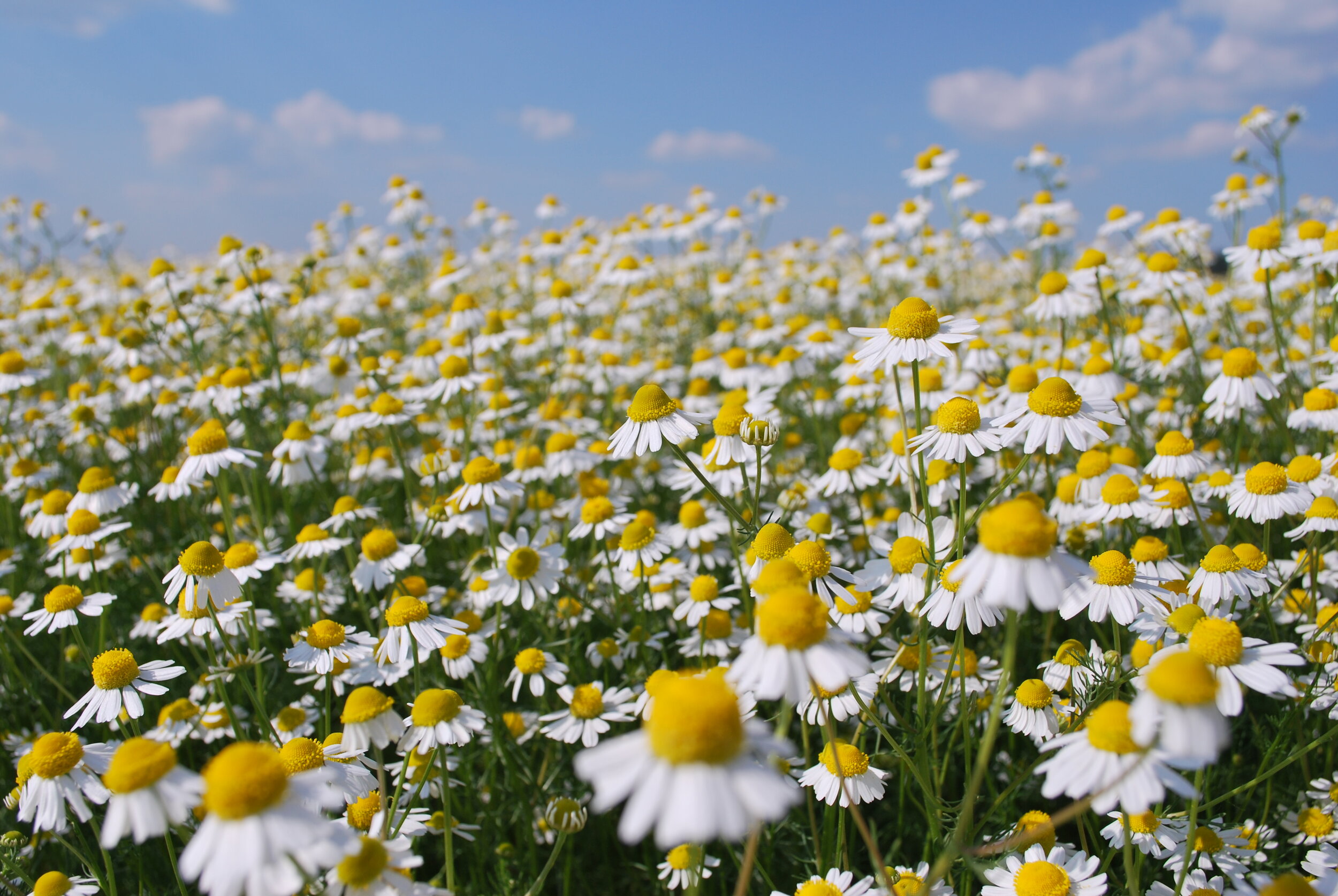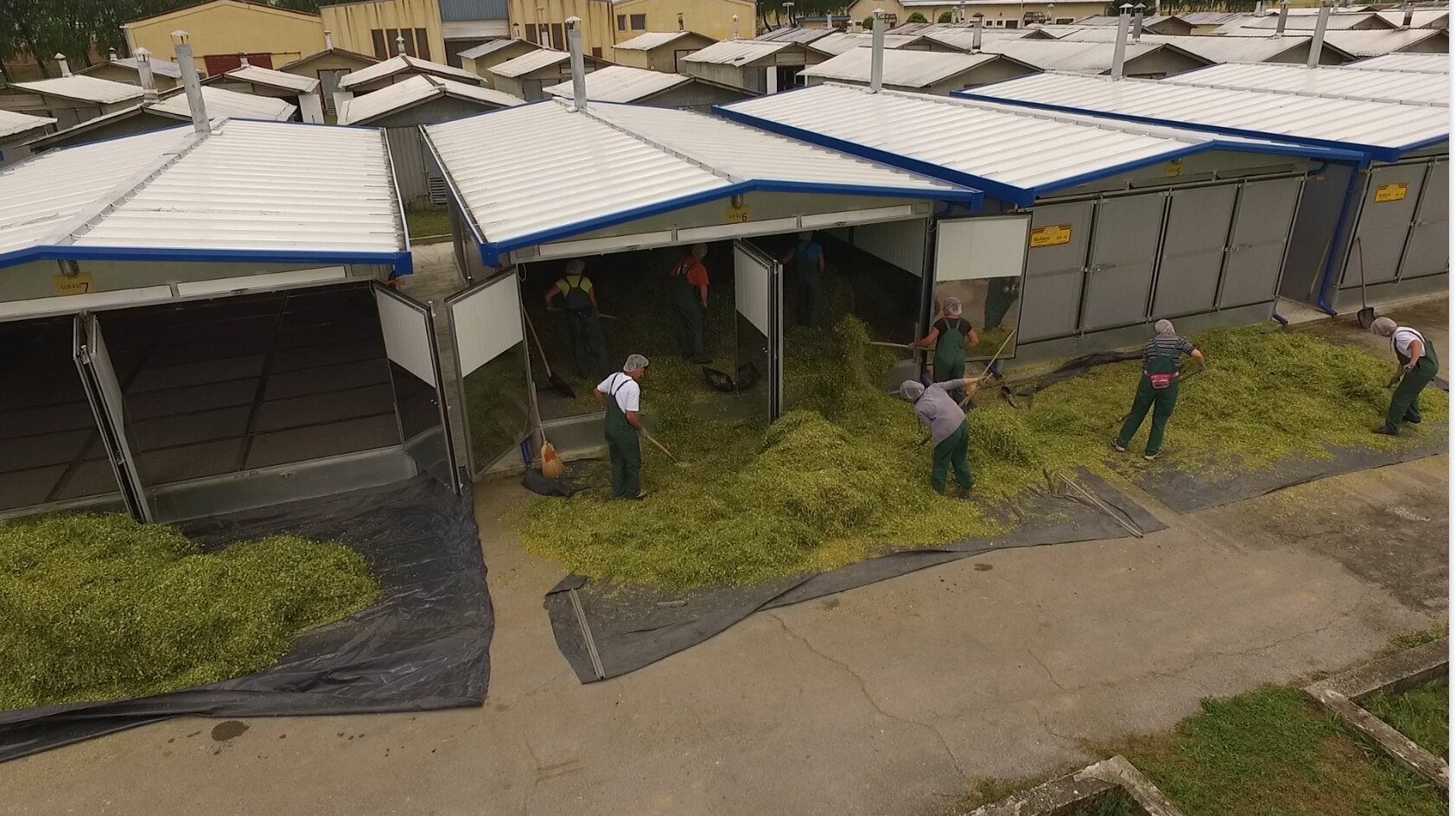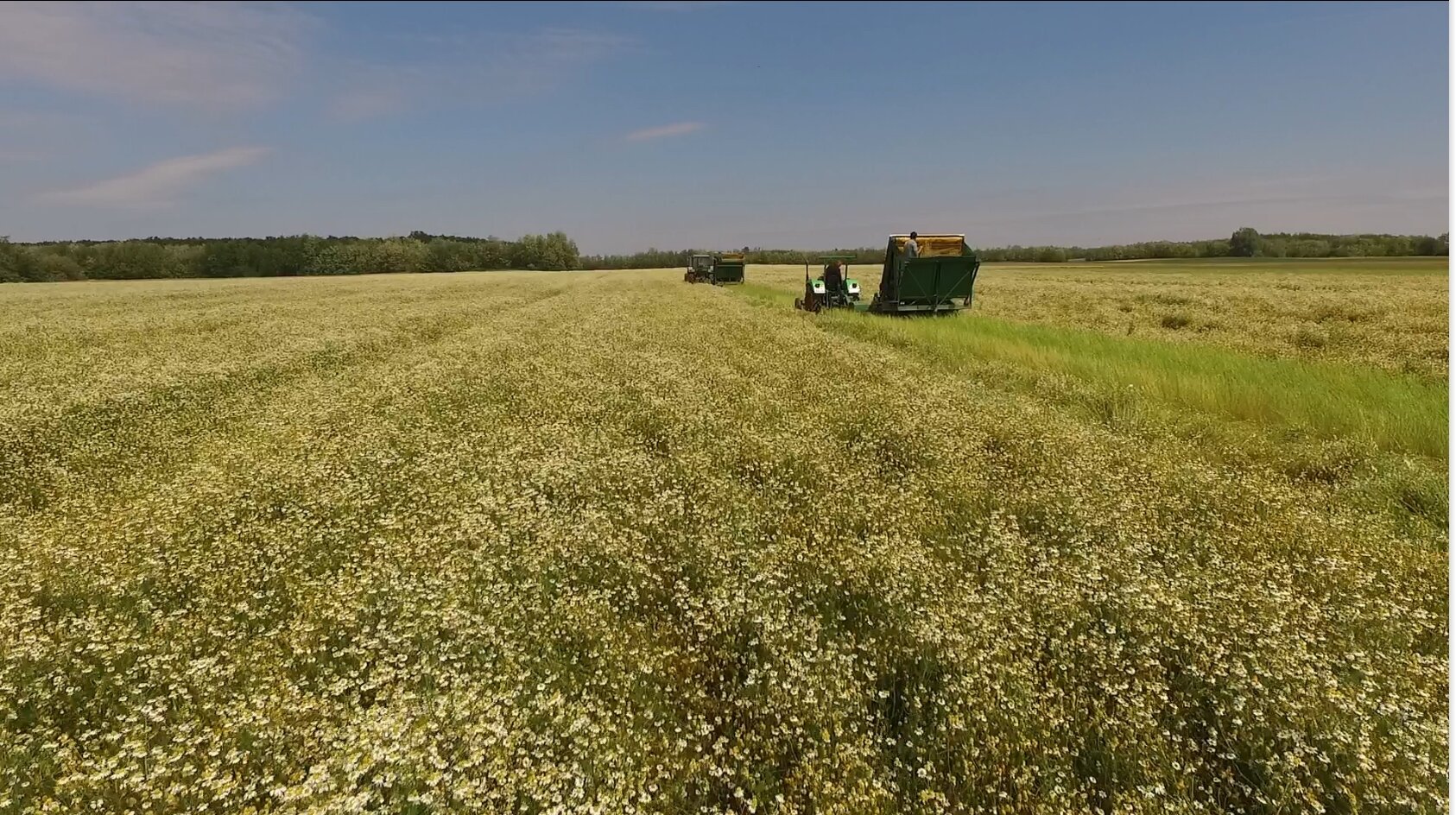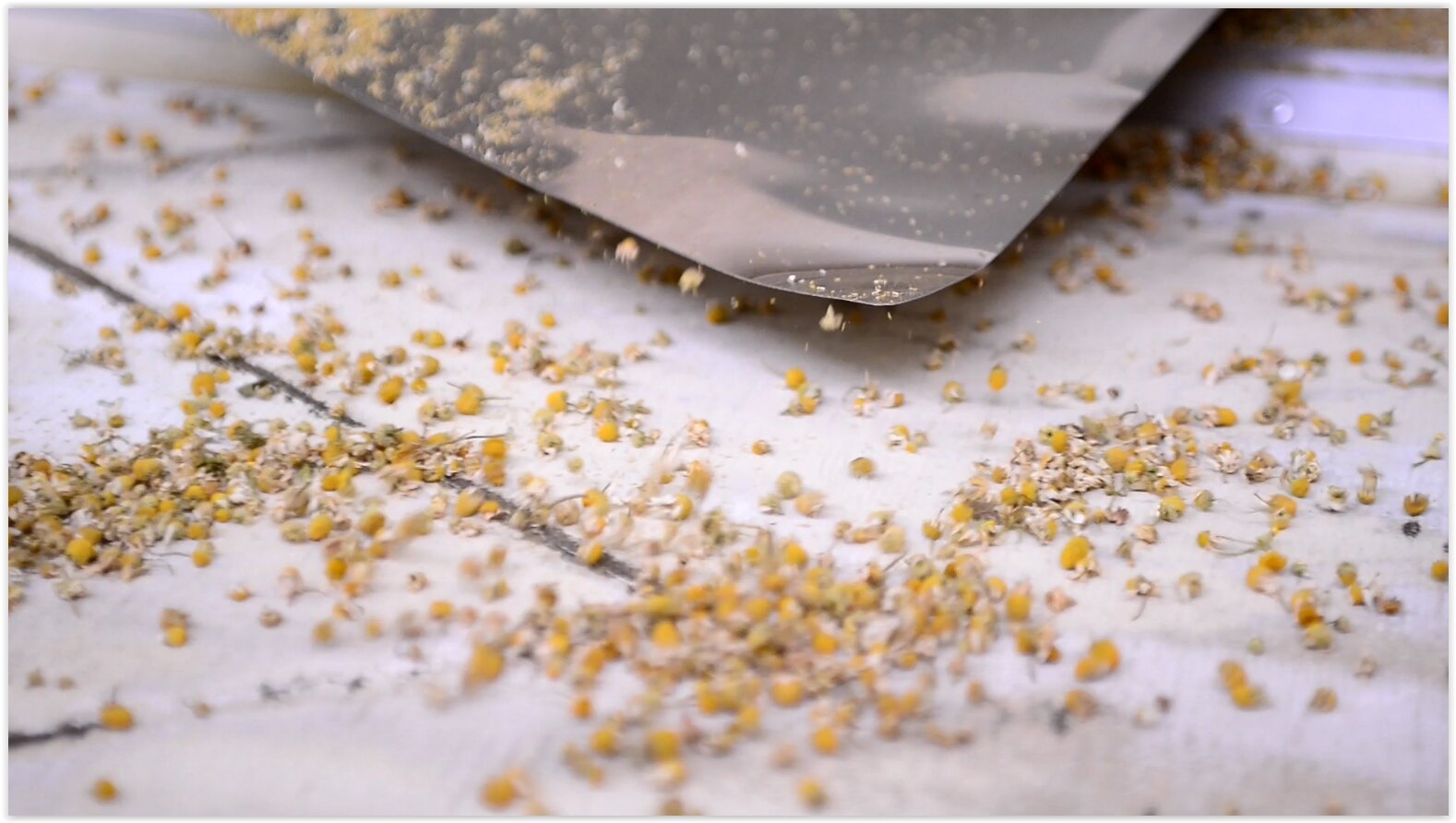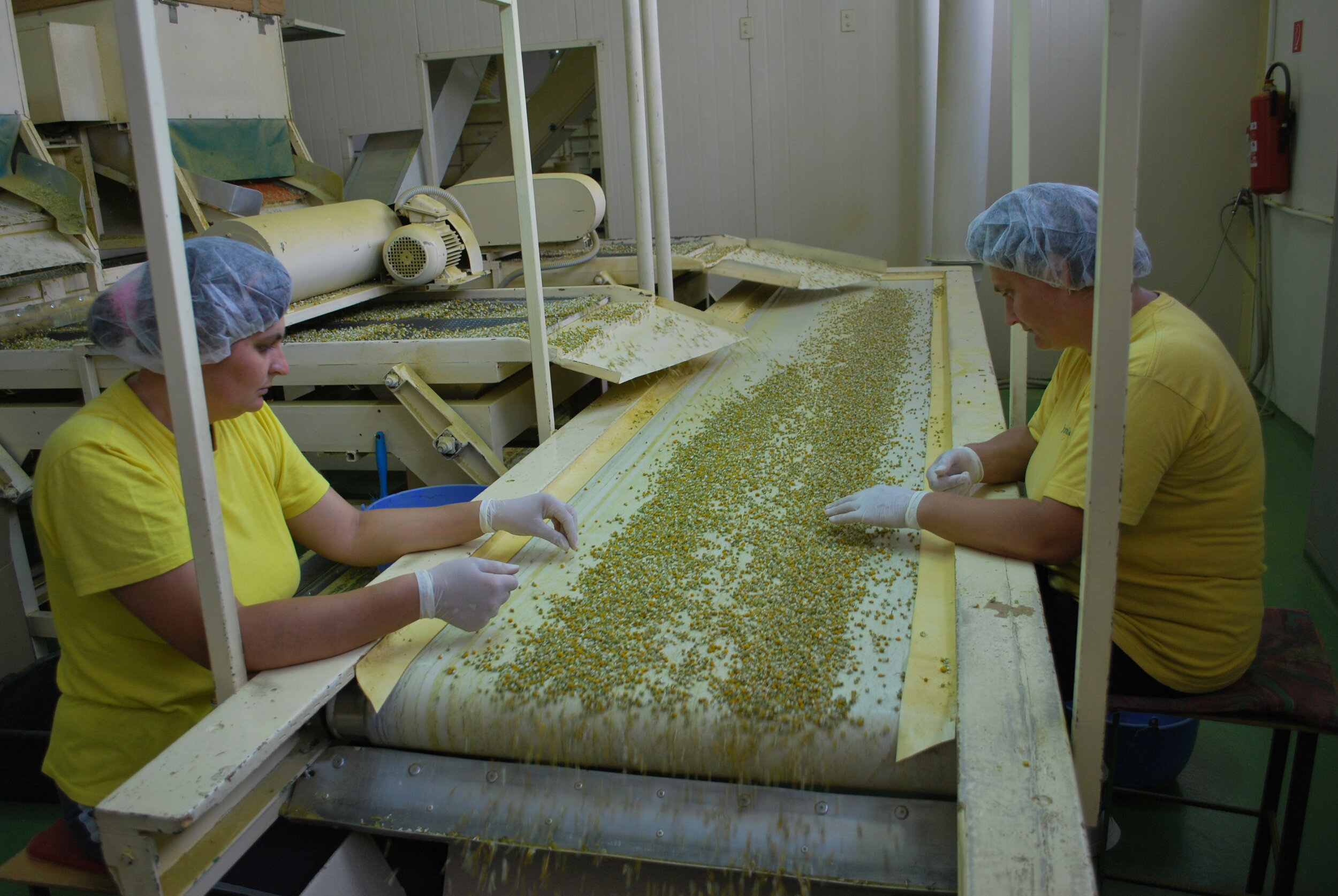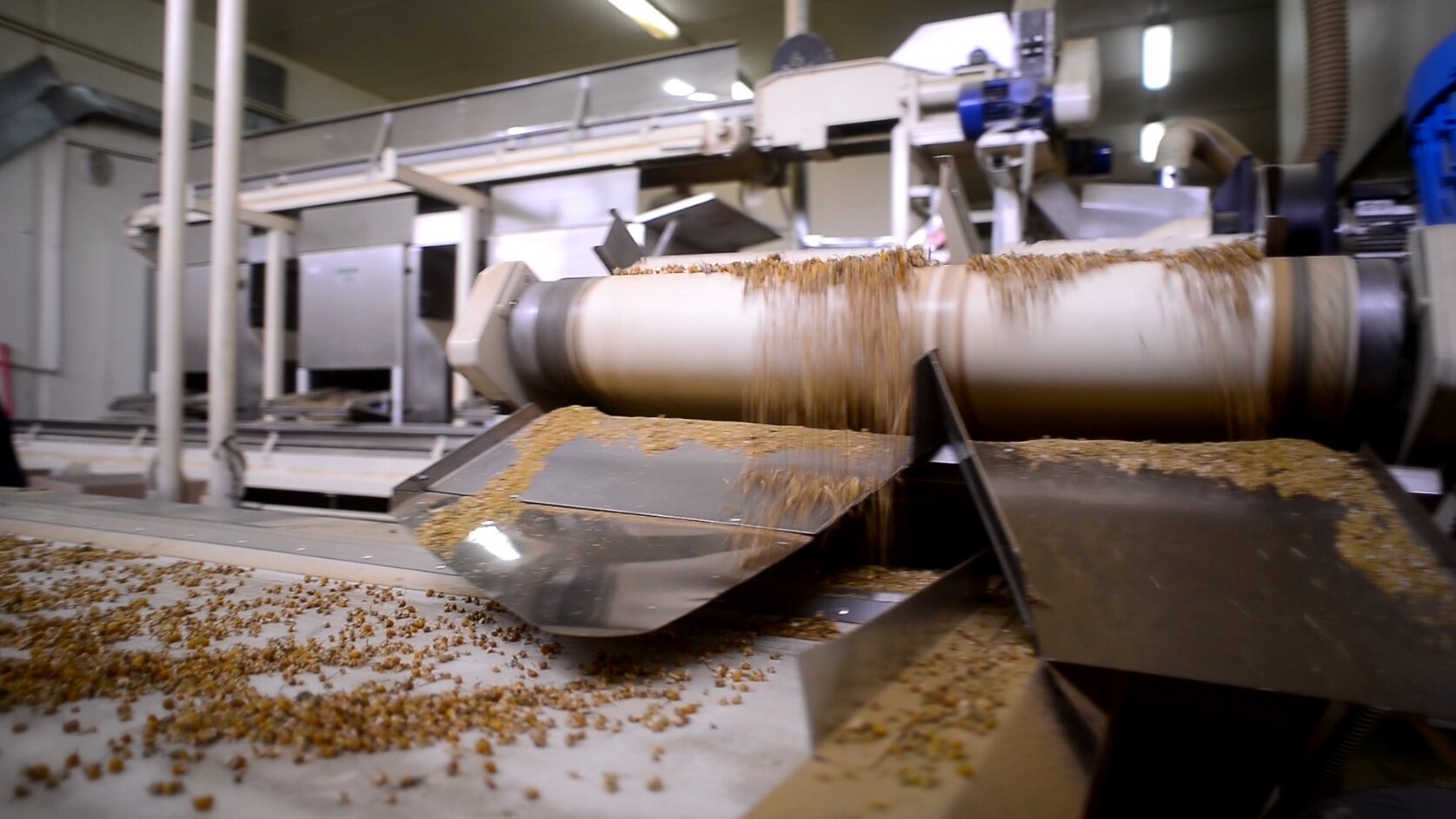Chamomile
The star among medicinal species
Often found near roads, landfills, or in cultivated fields as a weed, German Chamomile (Matricaria chamomilla L.) is one of the world’s most important medicinal herbs. It is native to southern and eastern Europe, and also grown in Germany, Hungary, France, Russia, Croatia and Argentina. Often referred to as the ‘star’ of medicinal herbs, Chamomile flowers are white and yellow with a gentle taste and a scent similar to apples or honey. Its seeds require open soil to survive and the plant prefers sandy soil and full sun.
Chamomile is an important source of income in Croatia, where UEBT member Jan-Spider works with 40 cooperatives. These families make a good part of their living from cultivation of Chamomile. For some of the families who have larger areas under cultivation, Chamomile can provide 50-80% of their income, while for others it might provide 20-30%. Most families in the region also grow other herbs and vegetables.
Chamomile is also used traditionally by farming families. For local people, Chamomile is well-known for its use as an infusion for intestinal pain, cold and better sleep.
Chamomile is collected by special flower harvester machines that look like big combs with knives. Once collected, Jan-Spider processes the Chamomile from its whole flowers or cuts it for tea filter bags. These Chamomile infusion products are sold mostly to the food sector for herbal tea products, but also to cosmetics and pharmaceutical companies.
Jan-Spider works to help family growers thrive by providing knowledge and advice on Chamomile and good farming practices, providing seeds, helping farmers to obtain finance and paying fair prices. The company also takes actions to support the local community as a whole including sponsoring school and child care activities, and local hospitals.
Director Diana Bartolic from Spider Group, Jan-Spider’s parent company says, “We are proud to be a socially responsible company and to maintain our natural environment for people and wildlife in our region. This means a lot to us and to our customers.”



